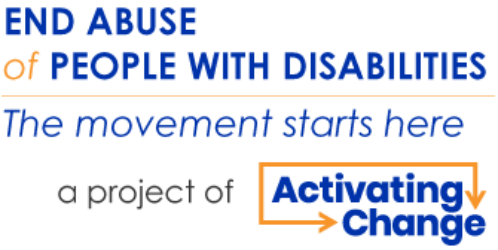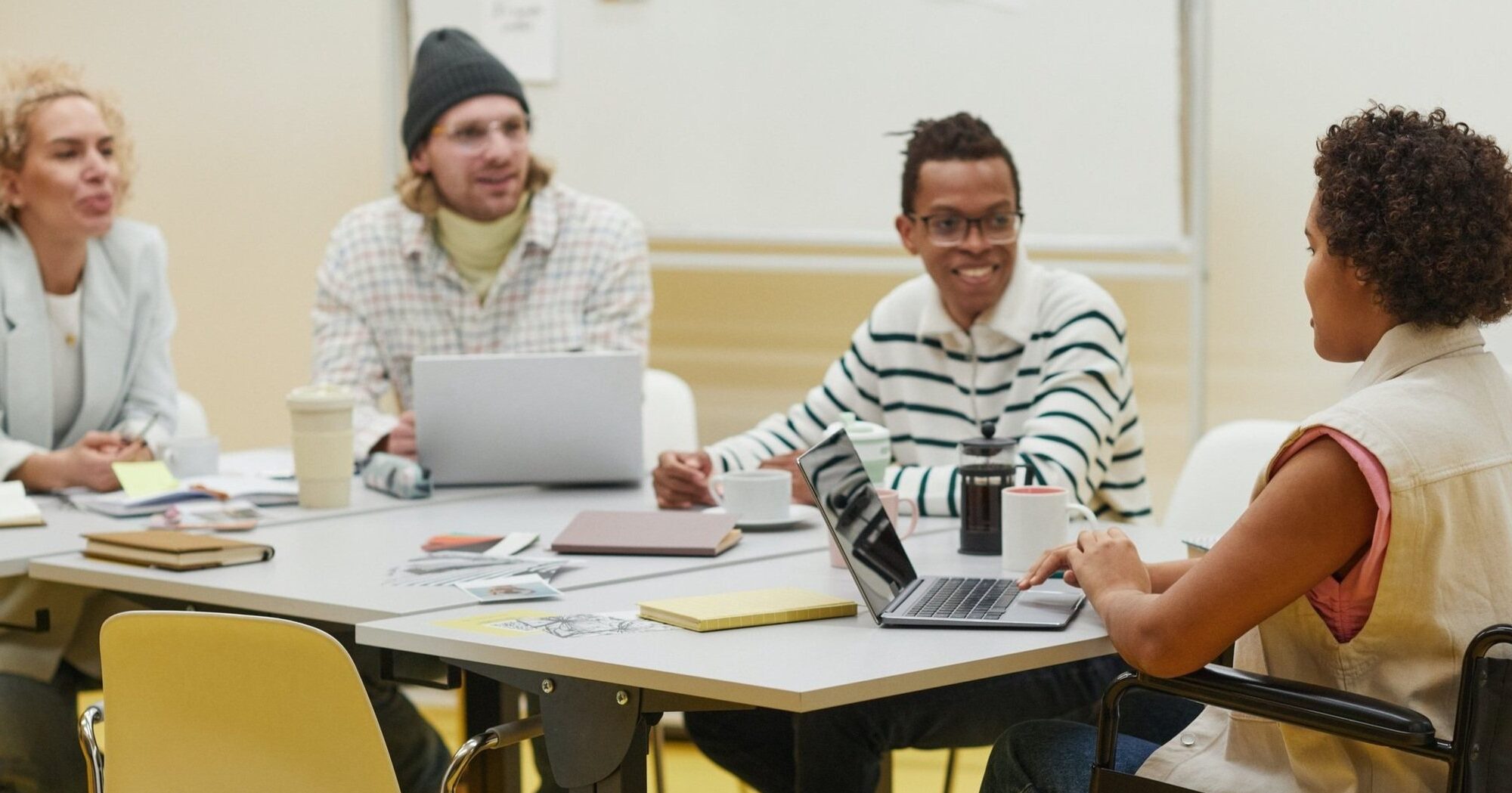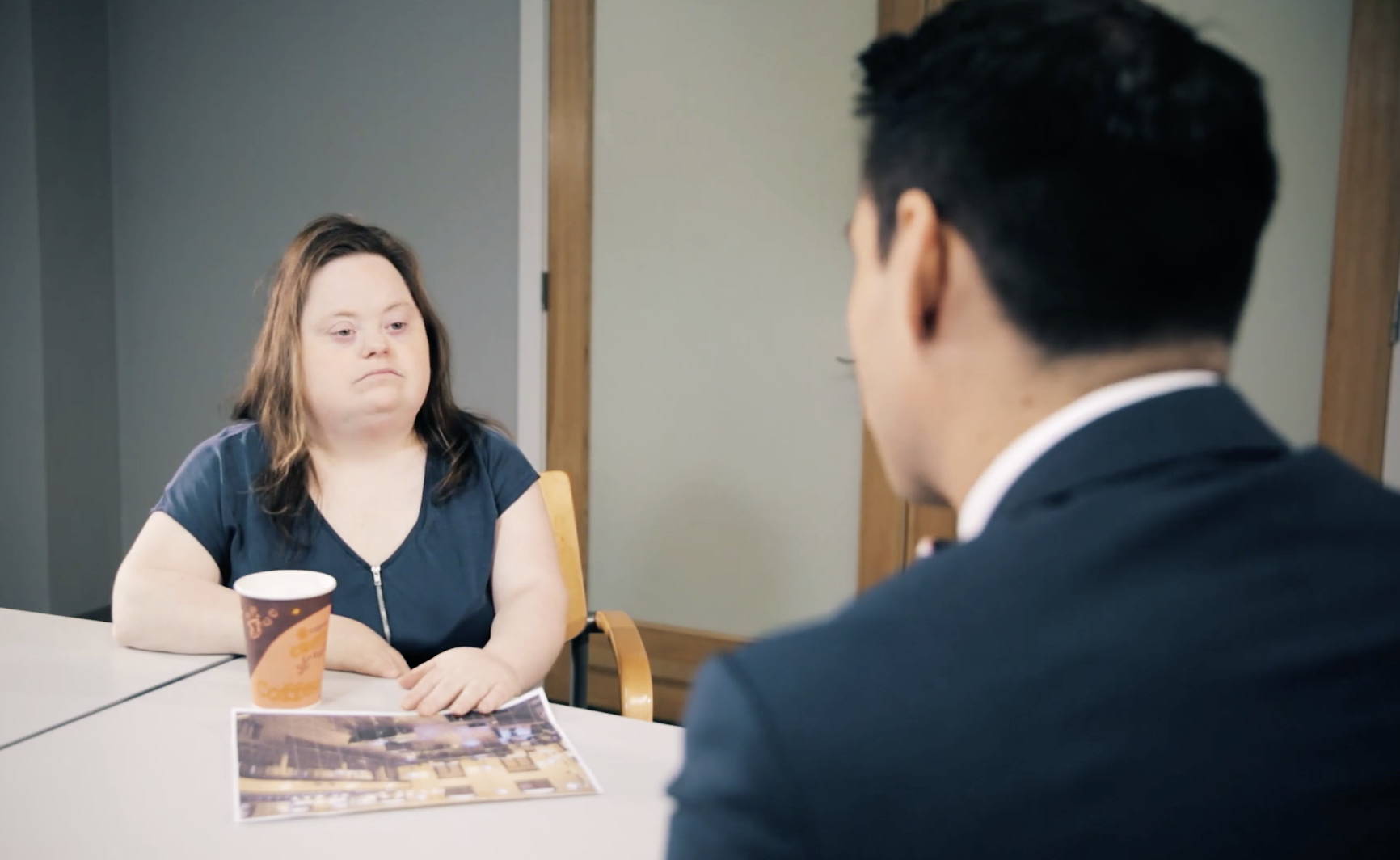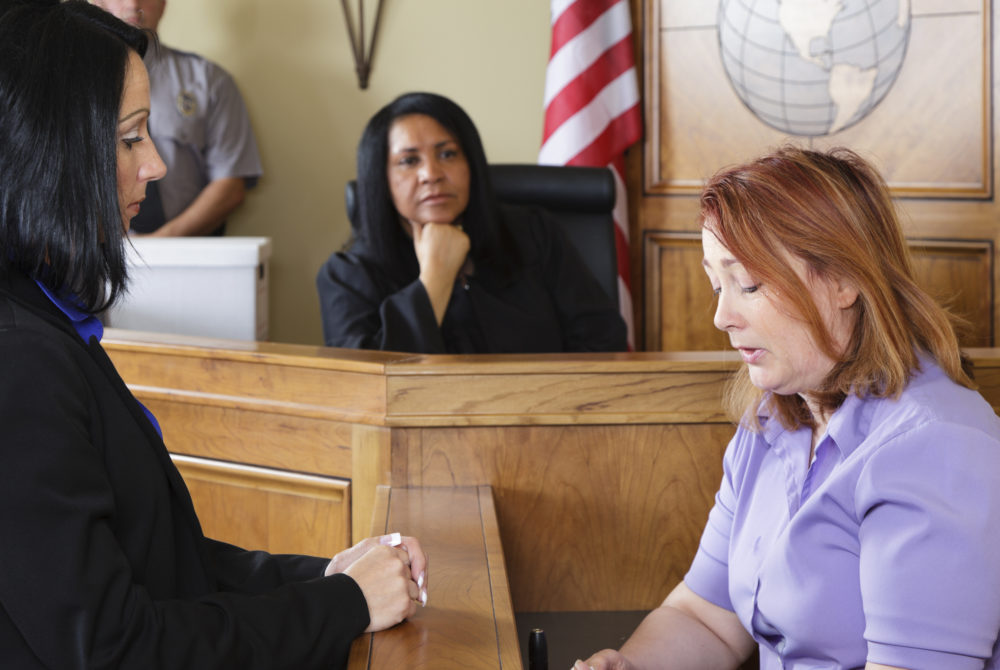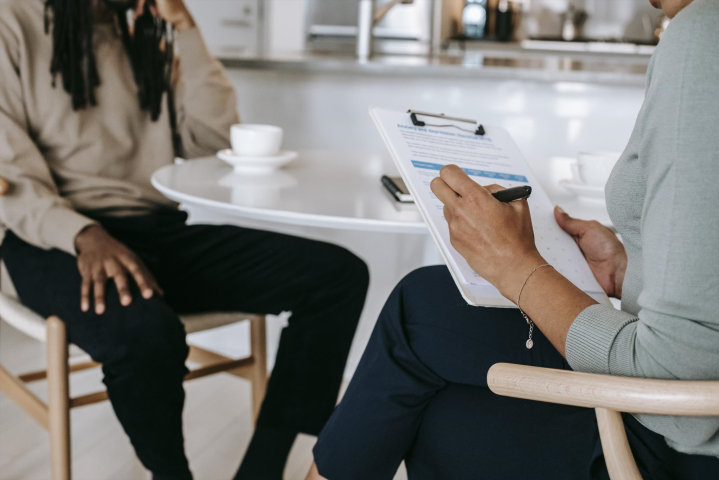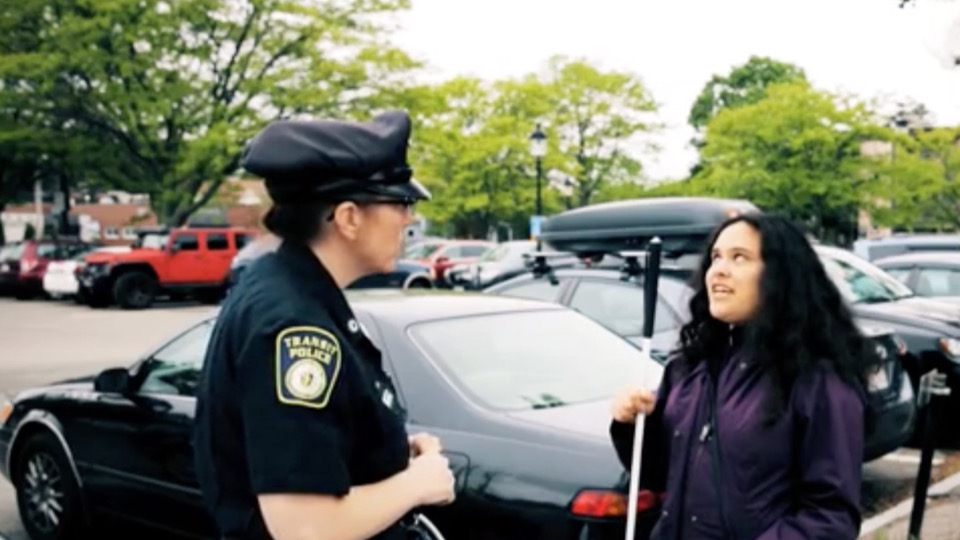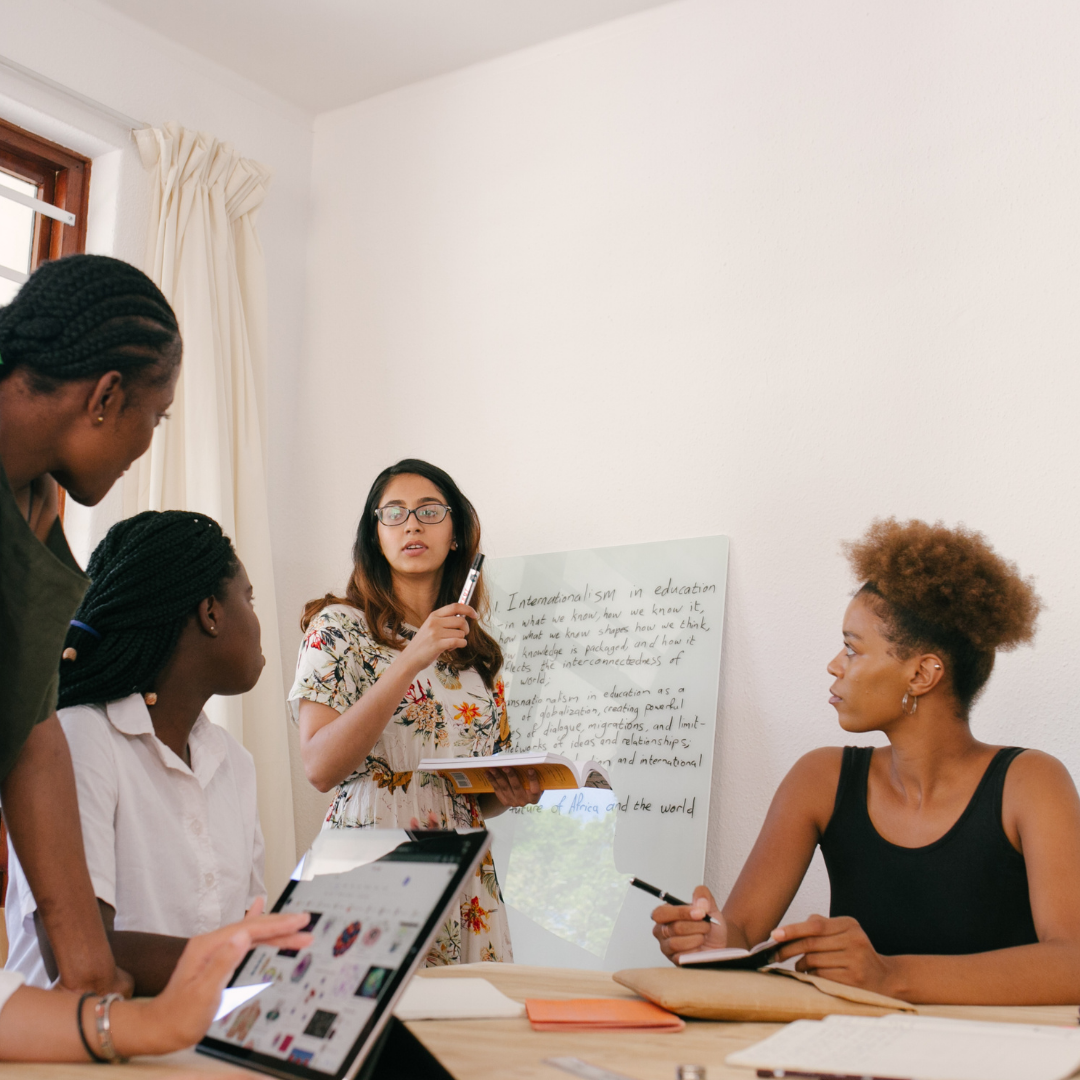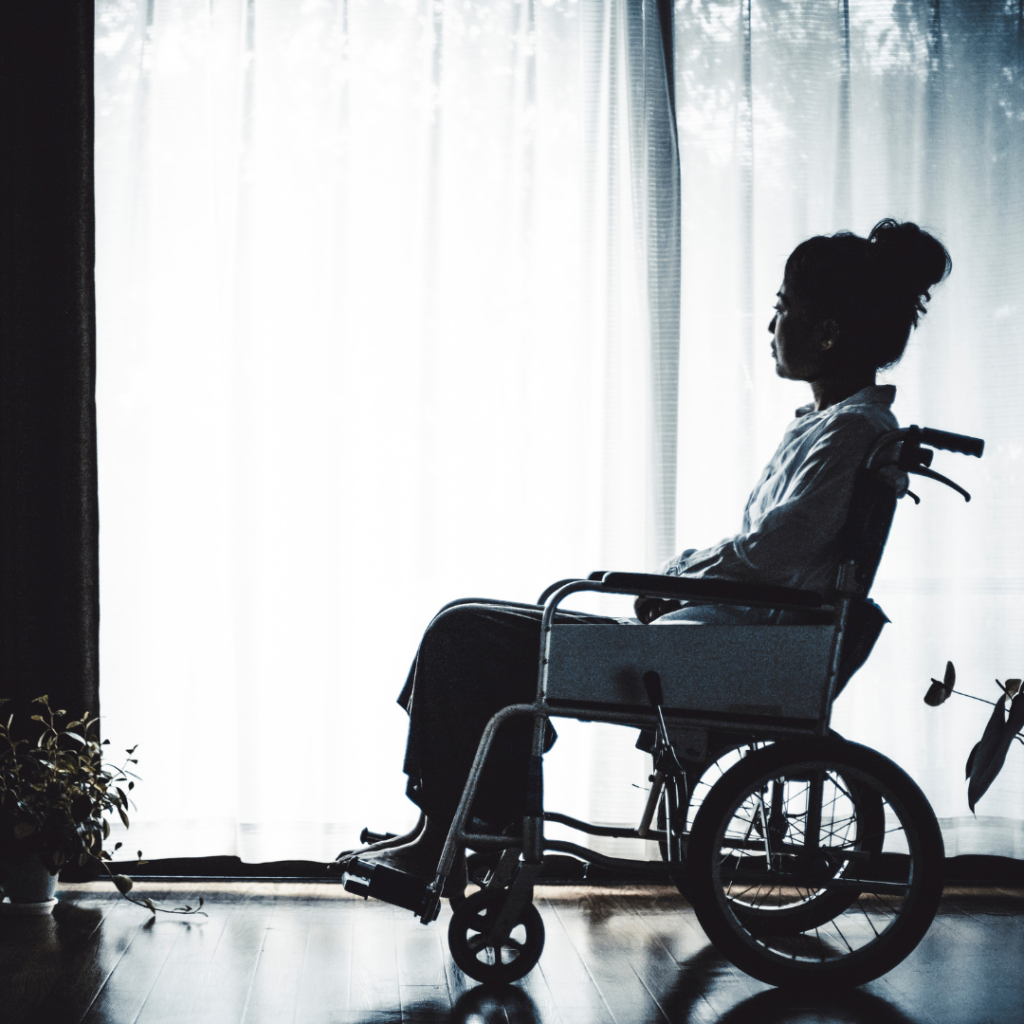
The U.S. Department of State’s Trafficking in Persons Report from 2012 states that “[P]ersons with disabilities remain one of the groups most at risk of being trafficked.”
Join us for our January webinar on Trafficking in the Lives of People with Disabilities to learn more about survivors with disabilities and Deaf survivors. We will be discussing how often and the common ways people with disabilities are trafficked, as well as the conditions that place people with disabilities at greater risk. We will also discuss the common barriers trafficked survivors face and how you can work to remove those barriers.

Each year, Deaf survivors/victims – especially those from communities of color – experience significant and persistent communication, cultural and other barriers to accessing hearing victim services. One of the greatest factors contributing to these barriers is the lack of qualified, trauma-informed sign language interpretation available to Deaf survivors. The lack of sign language interpretation in victim services for Deaf Survivors is an ongoing barrier out there, and directly because of that deaf survivors are unable to access hearing programs and systems.
Activating Change’s initiative, Sign Language Interpreting Service for Deaf Victims, addresses this gap by providing qualified, trauma-informed remote sign language interpretation services – using safe and secure technology – free of charge to victim service providers serving Deaf victims of crime. At this webinar, AC staff – Esther Fass and Nancy Smith – will provide an overview of the project, how to apply, and important dates. In addition, participants will be able to ask questions about participating in the project.
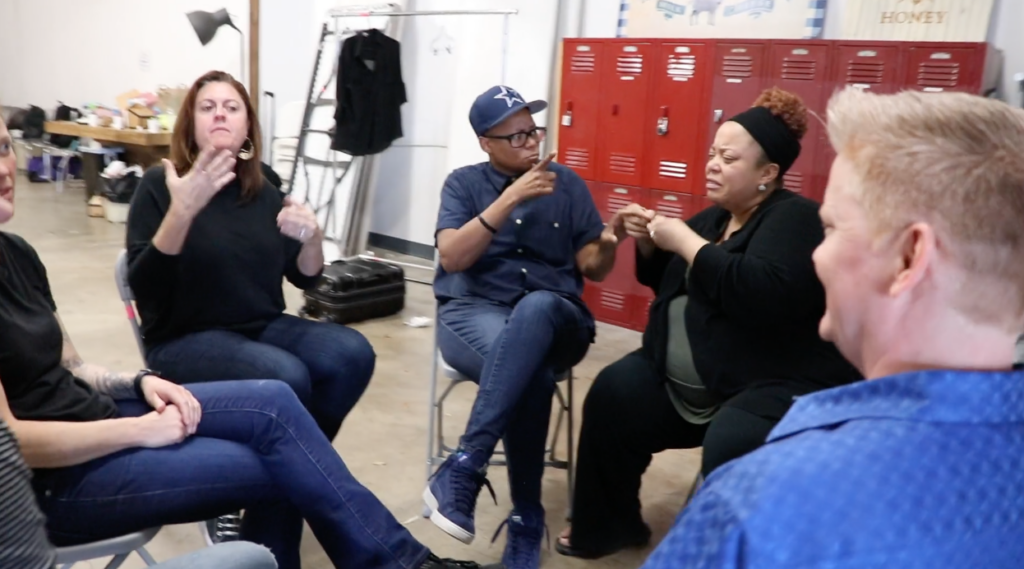
Nearly 71% of the United States does not have “for Deaf, by Deaf” advocacy services available to Deaf survivors of domestic and sexual violence and communication and cultural barriers commonly exist in hearing domestic and sexual violence programs for Deaf survivors. As a result, many Deaf survivors have nowhere to turn for help. To close these gaps, hearing allies must join with Deaf communities to advocate for change.
This webinar features two hearing allies who are working closely with and in Deaf communities – Amber Hodson, Empowerment Director at DeafHope and Nancy Smith, Executive Director of Activating Change – in conversation with Liam Esposito, a Deaf Project Director at Activating Change. We will explore their journeys toward allyship, including how they got started, the principles that guide their allyship, and practical suggestions other hearing advocates can take. Importantly, we will also discuss the importance of recognizing their own privilege and leveraging that privilege – which include access to information, funding, and connections to policymakers and funders – to support Deaf advocates and Deaf advocacy.
Join us for this conversation to get started on the path to allyship.

National Hispanic Heritage Month is from September 15 to October 15. As we celebrate the cultures and contributions of both Hispanic and Latinx Americans, our End Abuse webinar highlights the importance of culturally responsive, accessible services for Deaf and Disabled survivors of Hispanic and Latinx Heritage.
Join Olga Trujillo of Activating Change, Renee Lopez – a disability rights advocate in Texas, and Aracelia Aguilar – an Empowerment Director at Deaf Hope, for a conversation on how advocates can better engage and support Latinx Deaf and Disabled survivors of violence.
October is National Domestic Violence Awareness Month. Ensuring that your events and outreach materials are inclusive of people with disabilities and Deaf people is a key opportunity to reach potential survivors.
As organizations prepare to engage communities across the United States, join Activating Change for this informative virtual event. This webinar will explore strategies for ensuring your in-person and online events are accessible, welcoming, and inclusive.
This webinar is the second in a two-part series for prosecutors that provides essential information to reduce barriers and promote the prosecution of cases involving domestic and sexual violence against people with disabilities.
Providing effective accommodations and modifications to survivors with disabilities requires prosecutors to have knowledge of typical accommodations. It is also helpful for prosecutors to build relationships with disability providers in their community as this will help them to access those accommodations in a timely manner.
In part 2, Olga Trujillo of Activating Change and Jonathan Kurland of AEquitas, will review the range of needs survivors with disabilities may have in participating in a case involving gender-based violence against them and the accommodations prosecutors can provide. They will also identify the types of disability service providers that prosecutors can engage and partner with to help meet the needs of survivors with disabilities during the prosecution stage.
This webinar is the first in a two-part series for prosecutors that provides essential information to reduce barriers and promote the prosecution of cases involving domestic and sexual violence against people with disabilities.
In part 1, Olga Trujillo of Activating Change and Jonathan Kurland of AEquitas will explore the unique complexities of violence against people with disabilities and Deaf people, barriers to access to effective criminal justice responses for survivors with disabilities and Deaf survivors, and opportunities for change. This webinar will provide foundational information for prosecutors, including a deeper dive into disability, unique dynamics of domestic and sexual violence in the lives of people with disabilities, and specific tactics used by abusers.
This is the second webinar in a two-part series for law enforcement.
Join Olga Trujillo of Activating Change and Mike LaRiviere representing the National Sheriffs’ Association as they review the range of needs survivors with disabilities have when filing a report and participating in the investigation of gender-based violence crimes. They will also review the accommodations patrol officers and investigators can provide and identify the types of disability service providers that officers and investigators can partner with to help meet the needs of survivors with disabilities during the investigative stage.
This webinar is the first in a two-part webinar series for law enforcement.
Join Sandra Harrell of Activating Change and Mike LaRiviere for the National Sheriffs’ Association as they explore the unique complexities of violence against people with disabilities and Deaf people, barriers to access to effective criminal justice responses for survivors with disabilities and Deaf survivors, and opportunities for change. This webinar will provide foundational information for law enforcement, including a deeper dive into disability, unique dynamics of domestic and sexual violence in the lives of people with disabilities, and specific tactics used by abusers.
Black, Indigenous, and other people of color (BIPOC) face disproportionate amounts of trauma – including domestic and sexual violence. In addition to the present-day trauma experienced by Black and brown communities, these communities also experience historical trauma and community displacement. These intersecting traumas create barriers to healing and have a significant impact on mental health and overall wellness.
In many ways, BIPOC communities have had to look out for themselves and for each other to simply survive the systemic racism. Culture, community, and connection are pillars that support and uplift BIPOC individuals when the dangers of oppression and systemic racism threaten their communities. BIPOC communities have been powerful, unyielding, and revolutionary in combating these attempts to diminish their worth and value.
What would it look like if we supported and promoted culturally relevant and responsive forms of healing?
Join Olga Trujillo, Activating Change, as they facilitate a discussion to answer this question and more with Jolene Engelking, National Tribal Sexual Assault Resource Center Coordinator for the Minnesota Womens’ Sexual Assault Coalition and Lata D’Mello the Assistant Director of Monsoon Asians and Pacific Islanders in Solidarity. Together, they will explore the ways in which culturally specific and Tribal programs use community building and other unique approaches to help BIPOC survivors heal.
